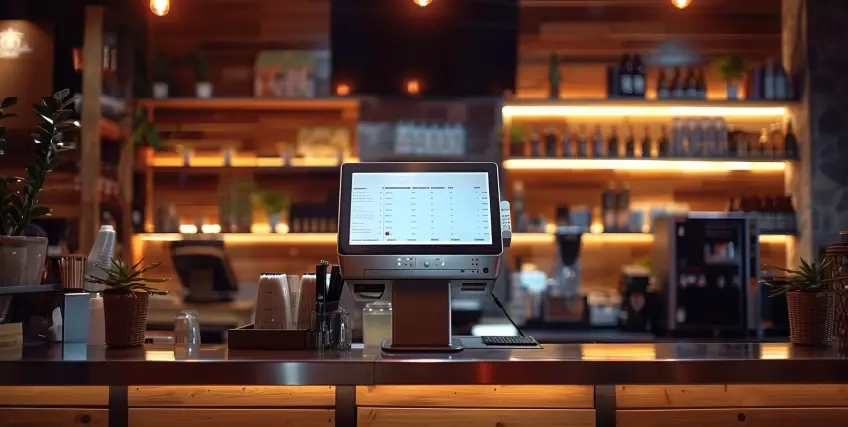Using a Small Business Loan to Open Your First Restaurant What to Expect
August 06, 2025 | Last Updated on: August 06, 2025

Opening your first restaurant is an exhilarating journey, blending culinary passion with entrepreneurial vision. However, turning your dream into reality requires more than exceptional recipes and décor; it demands substantial capital investment.
Navigating the realm of small business loans for restaurants is often the crucial element separating inspiration from a successful launch. By understanding lending options, eligibility criteria, and preparing realistic expectations, you can set yourself up for financial stability and long-term restaurant growth.
Understanding the Restaurant Lending Landscape
Getting a business loan to open a restaurant requires an awareness of what lenders need. Banks and SBA-backed lenders view restaurants as riskier ventures due to low margins and the unpredictability of the business. So, you can expect a rigorous screening process.
Lenders will check your credit score, scrutinize your business or restaurant management background, and require a detailed business plan. These steps ensure your concept has creativity and business power to break through the early issues restaurant startups are likely to face.
Types of Loans for Restaurant Startups
These are some of the small business loans for restaurants which you can use for restaurant funding or as restaurant financing options:
Traditional Commercial Loan
Traditional commercial loans, or brick-and-mortar loans, are granted by financial institutions that have branches, such as banks and credit unions. To get this restaurant business loan, you must have a good credit score and be willing to wait several months for approval. The payoff is worth the wait: reduced interest rates result in more affordable repayment terms for restaurant owners.
Borrowers can choose between short-term and long-term small business loans for restaurants. Still, long-term loans will not be suitable for start-ups due to financial uncertainty and volatility in the early stages. These loans also usually come with collateral, such as real estate, automobiles, or business property, so they are riskier for younger businesses.
Also, consider your lender. While big banks will have stringent requirements, the smaller bank that knows the local economy can offer more favorable financing options according to your needs for small business loans for restaurants.
Business Line of Credit
A business line of credit works like a credit card. You're approved for a sum but pay interest on only what you borrow. Suppose you're approved for $100,000 and borrow $20,000 for maintenance. Your repayment is only on the borrowed $20,000. This revolving credit gives restaurant owners ongoing access to capital, making it one of the most flexible small business loans for restaurants.
As opposed to a term loan, interest does not accrue until money is withdrawn, but banks usually require stricter lending standards. This entitles you to less than the total amount you require and higher interest rates. Lenders also tend to require your business to be under your control for a specified period, and you'll probably need to provide the latest financial statements.
Small Business Loan
Most banks work in conjunction with the U.S. Small Business Administration (SBA) in offering small business loans for restaurants through government-backed programs. These funding opportunities reduce the risk for lenders by providing guaranteed repayment, making it easier for startups to qualify, especially those with credit scores of 650 and above.
The SBA's Guaranteed Loan Programs are especially convenient for the individual needing a business loan to finance a restaurant, with the benefit of low rates, ease of payments, and the ability to invest with a low-down payment. Collateral, like restaurant equipment or real estate, is generally necessary, however. For most restaurateurs, this is one of the easiest and cheapest small business loans for restaurants.
Restaurant equipment financing
Restaurant equipment financing enables you to buy necessary equipment like ovens, coolers, or fryers without massive down payments. The lender shields the buyer, and the equipment itself is collateral, lowering risk and occasionally improving loan terms. If the borrower defaults, the lender can repossess the equipment.
This restaurant business loan is ideal for small business owners who need to maintain food quality and efficiency from day one. In the case of small business loans for restaurants, this option gives quick access to the money without affecting the cash flow. Just be prepared to submit good financial statements and show how the new equipment will contribute to business growth.
How to Evaluate Restaurant Loans
Not all small business loans for restaurants are created equal, so it's critical to read each offer's terms and structure carefully. Below are key factors to consider when looking at small business restaurant loans to ensure your selection meets your business needs and the character of the restaurant industry.
Payback amount
This is the interest and charges applied to the original loan amount. Having the overall amount of repayment assures an approximation of the actual cost of small business loans for restaurants and how it will impact your cash flow and planning.
Term length
Your business and expected revenue will determine the choice of loan term. Longer terms mean lower monthly payments, but more overall interest paid. Shorter terms mean quicker payoff but bigger monthly payments, something to note when starting your restaurant.
Interest rates
Lender-to-lender interest rate comparison is necessary. With a lower rate, your total cost is lower, though this may require an improved business credit score. For new restaurants, small business loans with easy qualification and modest interest rates could be a more viable option.
Collateral requirements
Lenders may ask for collateral such as real estate, equipment, or inventory. Consider how prepared you are to use your personal or business assets as collateral. If the loan to start a restaurant is collateralized, be prepared for the threat of default.
Consider gov-supported lending programs like SBA-arranged small business loans for restaurants. These usually come with advantageous terms designed to allow restaurant owners to establish a firmer financial footing in the restaurant industry.
Preparing for the Application Process
It requires careful preparation and disclosure to qualify for a small business loans for restaurants. Borrowers are required to bring in years of tax returns, comprehensive financial projections, a solid business plan, and any needed permits or franchise agreements.
The minimum credit score for SBA lenders is usually around 680, but alternatives can be more lenient if your experience or collateral is strong.
Collateral is typically required, whether in the form of business assets, equipment, or even personal property. Startups, especially, should be prepared for personal guarantees, which would hold the owners accountable if the business fails. The process, especially for SBA-backed loans, can take several weeks to months. While online lenders offer much faster turnaround times, it's prudent to examine terms and total repayment requirements carefully.
Meeting Lender Expectations
Anticipate deep scrutiny from lenders. In addition to financial documentation, you’ll need to show convincing evidence of market demand, be it distinctive cuisine, a prime location, effective branding, or strategic partnerships.
Control over costs, clear inventory plans, and sound marketing strategies all strengthen your case. Transparency regarding past financial setbacks can also build trust and show how you’ll use experience to improve outcomes. The restaurant business loan application is as much about showcasing business intelligence as it is securing capital.
Challenges and Realities of Restaurant Financing
It's practical to worry about industry risk when seeking a loan to start a restaurant. New restaurants fail in the majority of cases, and it often occurs within the first couple of years. Pitfalls are underestimating expenses, overestimating opening revenues, and lacking sufficient cash flow. Approach your application as an opportunity to stress-test assumptions and add working capital to provide surprises.
There are other problems, such as collateral risk in the case of default and stress caused by personal guarantees. Though SBA loans carry lower interest and longer terms, they involve a lot of paperwork and waiting time. Online lenders move money quickly but at a cost. Check all offers, not only the quoted interest rate, against hidden expenses and payment convenience.
Conclusion
Using small business loans for restaurants is more than signing a check; it's a process that demands honest planning, strong preparation, and grit. Expect various levels of paperwork, negotiation, and self-reflection involved in the process. Prepare to encounter skepticism, inquiry, and decisions regarding types of small business loans for restaurants.
But be prepared also that the strict process will help strengthen your management skills, financial rigor, and operational preparedness. No matter if you borrow your money from a traditional bank, the SBA, an online lender, or even fund it with grants and other funds, the three keys to success are realism, transparency, and flexibility.
FAQs About Small Business Loans for Restaurants
How hard is it to get a business loan to start a restaurant?
Restaurants are often viewed as high-risk by traditional lenders. Approval for standard financing can be difficult. Small business restaurant loans, such as SBA 7(a) loans, are specifically designed to fund new and existing restaurant businesses, offering an easier access point to capital.
Is it wise to take out a loan to start a business?
Restaurant small business startup loans can be utilized to secure the financing you require to open your doors for business. And not only can these loans be used for startup costs, but they can also be utilized to build credit, paving the way for more desirable financing down the road.
What do you need to qualify for a loan to start a business?
To qualify for small business loans for restaurants, lenders typically look at your revenue potential, ownership experience, location, and ability to repay. Compliance with SBA size standards and a well-developed business plan also play a significant role. Even those applicants with poor credit scores have decent funding options.
What is a restaurant credit?
A restaurant credit is a revolving financing solution that grants restaurant businesses access to capital up to a specific limit. These small business loans for restaurants offer quick liquidity to finance everything from inventory to unexpected repairs.
Is it smart to get a small business loan?
Obtaining small business loans for restaurants from banks can be a good option, especially if you have solid credit and sales. The loans have lower interest rates and enable you to build long-term lender relationships for future growth.
Frequent searches leading to this page
Term Loans are made by Itria Ventures LLC or Cross River Bank, Member FDIC. This is not a deposit product. California residents: Itria Ventures LLC is licensed by the Department of Financial Protection and Innovation. Loans are made or arranged pursuant to California Financing Law License # 60DBO-35839




